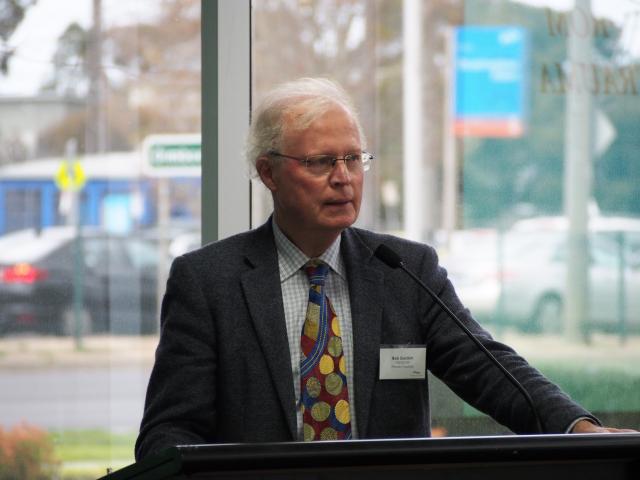
By Callum Ludwig
Ash Wednesday left a burnt and barren landscape across large parts of Victoria and South Australia, with a lengthy and arduous recovery to follow.
Beyond the physical recovery, thousands were left traumatised too, with the loss of life, homes and livelihoods causing immense hardship.
Yarra Glen resident and trauma psychologist Dr Rob Gordon OAM was prompted by the Ash Wednesday fires to dedicate his career to helping people and emergency service workers recover after a disaster.
Dr Gordon said at the time of Ash Wednesday, there wasn’t anything like the services we have nowadays and it was expected to be a short process.
“I remember we were told when we first went up there that we were expected to be there for six months and then come out, but we had to keep saying that there was still a need. That’s where I learned that it’s as much about what happens to people’s lives during the recovery period as it is the disaster event itself,” he said.
“It’s very important for people to stay focused during the recovery period on looking after the important parts of their lives that otherwise they might be tempted to just put aside so they end up losing relationships and health and things like that.”
Post-traumatic stress disorder (PTSD) had only been recognised since 1980, just three years prior to Ash Wednesday and very little was known publicly about how traumatic events affected people’s wellbeing long-term.
Dr Gordon said one of the things he noticed was the tendency for communities to develop splits according to the different ways in which they were affected by the disaster where needs didn’t align.
“It undermined the sense of common community which is such an important resource for some people. Traumatic events would also come back to people like for instance, when people suddenly encountered a bank of cloud in the middle of winter, and it brought back the smoke, and they would feel this great anxiety rising up,” he said.
“The other thing was how people’s sense of safety and security is damaged, the bushfire made them feel like they can’t trust life to be safe and secure anymore when actually a lot of things go back to being the same. It becomes important for people to talk about their reactions and share their stories.”
Dr Gordon’s work has shaped the way organisations such as the Australian Red Cross, government agencies and other groups have dictated their emergency and trauma responses.
Dr Gordon said anniversaries of events like Ash Wednesday often cause people to feel a sense of sadness and reminisce on the past, but it’s really important to respect and acknowledge those feelings as they help us come to terms with things.
“People who have lost loved ones or lost precious things, or even people who feel they lost their nice and comfortable lifestyle can find it very hard. But if we suppress the emotions, it comes back as painfully and unexpectedly as ever,” he said.
“Anniversaries also act as a marker of time and we can often gain a sense of life being enhanced by big experiences and thinking about what we’ve learned. “
Dr Gordon himself had to experience the trauma of a bushfire emergency when he was caught up alongside the community in the Black Saturday bushfires of 2009.
Dr Gordon said he and his colleagues were feeling their way into the field at the time and realised that something more than ordinary clinical work was required.
“I realised that it was an area in which some pioneering work could still begin, so I made sure I kept helping wherever I could with what I learned from this, and things kept happening,” he said.
“People often looked around for someone with a bit of experience and I kept getting asked for suggestions and advice so I put my energy into it because I thought it was a really important area where people’s lives could be seriously affected.”
Dr Gordon’s life work has gone on since Ash Wednesday to include working with victims of the Port Arthur massacre, the Bali bombings, the Christchurch earthquakes and major floods, cyclones and fires.
Dr Gordon said Ash Wednesday has been crucial for shaping Victoria’s emergency management and response and that as little as 15 to 20 years ago, other states were learning the basic things Victoria learned from Ash Wednesday.
“It was so important to keep feeding into the longer-term effects on people’s lives so the system could understand the social dimension of recovery and the need to support community life, which is something I think Victoria has been very proactive about,” he said.
“What we now know is that the disaster environment is much more active now, there’s an important message about accepting that the world is not as safe and stable, as we were used to expecting in say, the 1970s and 80s and the more we can accept that, the more prepared we can be.”






